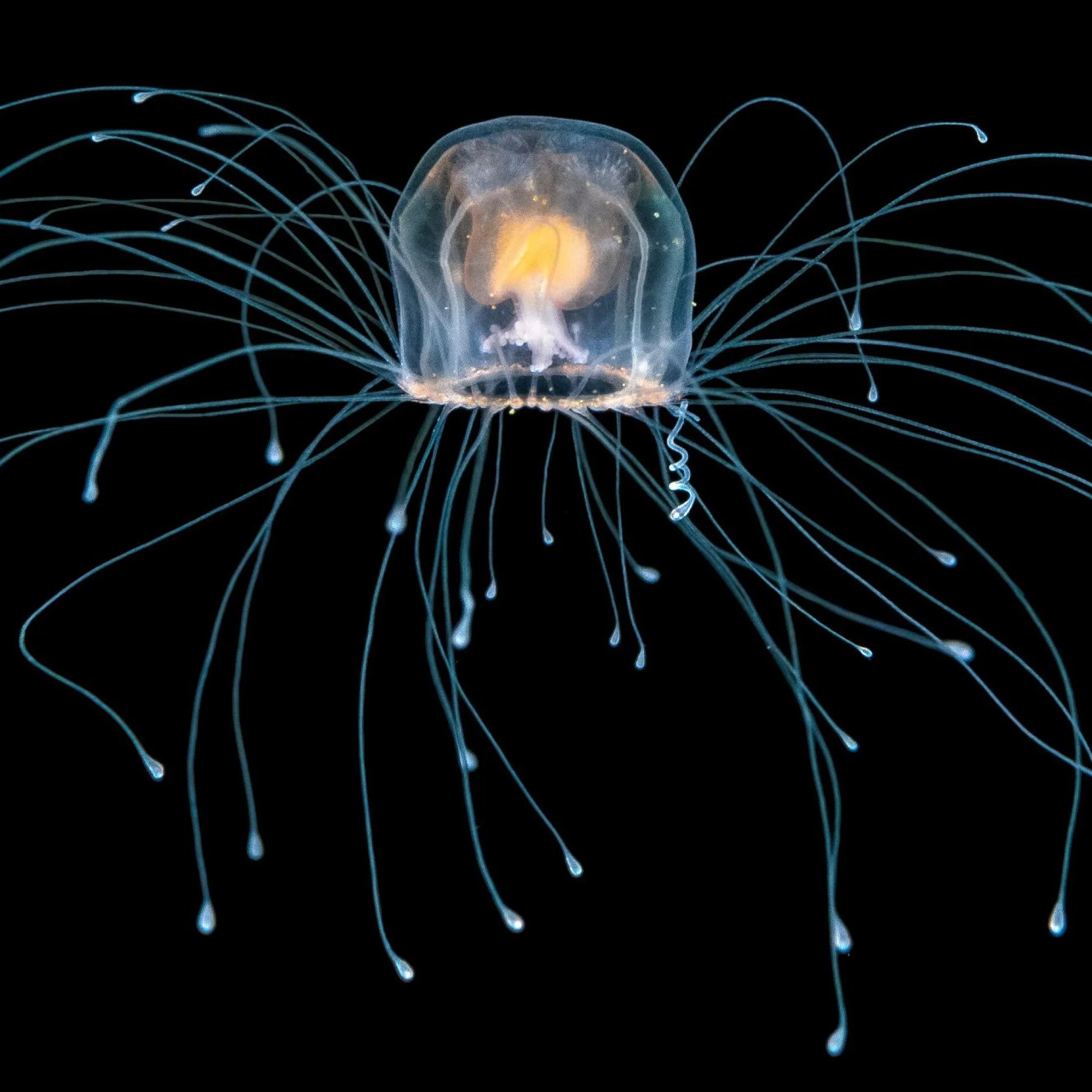The immortal jellyfish, scientifically known as Turritopsis dohrnii, has a unique ability that can, in theory, allow it to live forever. This small, biologically immortal species of jellyfish has captivated scientists and the public alike with its extraordinary lifecycle, which includes the potential for reverting back to its juvenile form after reaching maturity – a process akin to turning back its own biological clock.

Article: The Enigma of Turritopsis dohrnii – The Immortal Jellyfish
In the vast and mysterious world of the ocean, a tiny creature no larger than a pencil eraser has emerged as a subject of fascination and wonder in the scientific community. The Turritopsis dohrnii, commonly known as the immortal jellyfish, possesses a seemingly miraculous ability to cheat death, challenging our understanding of the natural laws of aging and mortality.
The Lifecycle of Turritopsis dohrnii
Native to the Mediterranean Sea and the waters of Japan, the immortal jellyfish begins its life as a tiny larva known as a planula, which develops from a fertilized egg. This planula settles on the seafloor and grows into a colony of polyps, which in turn produce free-swimming medusae or adult jellyfish.
The magic of the immortal jellyfish lies in what happens after it reaches maturity. Unlike other species of jellyfish, which die after reproducing, Turritopsis dohrnii can revert to its polyp stage under environmental stress or physical assault, including starvation, temperature changes, or injury. In this rejuvenation process, known as transdifferentiation, its cells undergo a remarkable transformation, converting into different types of cells. This allows the jellyfish to essentially start its life cycle anew.
Biological Immortality and Its Limits
The term ‘biologically immortal’ does not imply that the immortal jellyfish cannot die; rather, it means that they are not subject to death due to aging. They can still be killed by disease or predators. This fascinating ability of Turritopsis dohrnii challenges the very notion of what it means to be immortal.
Implications for Human Aging and Medicine
The study of Turritopsis dohrnii has significant implications for human aging and medical research. Understanding the mechanism behind the jellyfish’s ability to revert to a younger state could provide insights into cellular regeneration and aging processes in humans. This could potentially lead to breakthroughs in medical science, particularly in regenerative medicine and the treatment of age-related diseases.
The Ecology of the Immortal Jellyfish
While the immortal jellyfish’s ability to potentially live forever is remarkable, it also poses ecological questions. There is a concern that their unique lifecycle could lead them to become an invasive species. As they are capable of reverting to their polyp stage, they can potentially colonize new areas rapidly. This adaptability, combined with their resistance to death from natural causes, makes them a species of interest in terms of ecological impact.
Challenges in Research
Studying the immortal jellyfish presents unique challenges. They are fragile and difficult to maintain in captivity, which complicates efforts to observe their life cycle and cellular transformations in a controlled environment. Moreover, much about their biology and genetic makeup remains a mystery, requiring further research to fully understand their regenerative capabilities.
Ethical and Philosophical Considerations
The immortal jellyfish also raises ethical and philosophical questions about the natural cycle of life and death. The pursuit of human longevity has been a longstanding quest in science and medicine. However, the implications of significantly extending human life span, as suggested by the potential unlocked by Turritopsis dohrnii, bring up complex issues regarding overpopulation, resource allocation, and the fundamental nature of human existence.
Turritopsis dohrnii, the immortal jellyfish, is more than just a biological curiosity; it represents a key to unlocking some of nature’s most profound mysteries. Its unique ability to revert to a juvenile state and potentially live indefinitely poses questions and offers hope in the realms of biology, medicine, and even philosophy. As research continues, this tiny creature may hold the answers to some of the biggest questions about life, aging, and mortality. While it may not hold the secret to eternal life, the immortal jellyfish certainly provides a unique perspective on the possibilities of life’s longevity.

